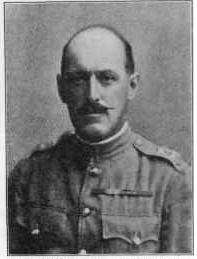Robert Kekewich
| Robert Kekewich | |
|---|---|
 Robert Kekewich | |
| Born | 17 June 1854 |
| Died | 5 November 1914 |
| Allegiance |
|
| Service/branch |
|
| Rank | Major-General |
| Battles/wars |
Third Anglo-Burmese War Second Boer War |
| Awards | Companion of the Order of the Bath |

Major-General Robert George Kekewich, CB (17 June 1854 – 5 November 1914) was a Victorian era British Army officer.
Military career
Kekewich was the second son of Trehawke Kekewich, of Peamore House, near Exeter, Devon, and the grandson of Samuel Trehawke Kekewich. He was also the brother of Sir Trehawke Herbert Kekewich, 1st Baronet and the nephew of the judge Sir Arthur Kekewich. He was educated at Marlborough, and entered the army through the militia in 1874. Kekewich joined the Buffs on 2 December 1874. He fought in the Perak War of 1875-6, and in the Sudan, 1884-5, where he gained a brevet majority. He was employed as Deputy Assistant Adjutant-General in the Sudan campaign of 1888, and afterwards as military secretary to the Commander-in-Chief, Madras, and was engaged in the Third Anglo-Burmese War.[1]
He was promoted into the Loyal Regiment (North Lancashire) and commanded the 1st Battalion of that regiment in the Second Boer War. He commanded the garrison during the successful defence of Kimberley, during which time he came into conflict with Cecil Rhodes. In late September 1901 he was wounded in an attack by General de la Rey near Moedwil,[2] but soon recuperated. He received the rank of brevet-colonel and was appointed a Companion of the Order of the Bath (CB). In August 1902 he was specially promoted major general after winning the Battle of Rooiwal in April of that year. Kekewich retired from the army in 1904 but was appointed to the honorary position of Colonel of the Buffs on 5 October 1909.[1]
Death
On the outbreak of World War I in 1914 General Kekewick was appointed to the 13th (Western) Division, which he commanded until shortly before his death by suicide at the age of 60 on 5 November 1914. In poor health and suffering from depression, Kekewich had been invalided from his command and hospitalized before returning to his home near Exeter.[3] He was buried in St Martin's Churchyard, Exminster, Devon.[4]
References
- 1 2 "Colonel Robert George Kekewich". Boer War. Retrieved 30 December 2015.
- ↑ "The War - Casualties, the attack on Colonel Kekewich" The Times (London). Friday, 4 October 1901. (36577), p. 8.
- ↑ The ‘Times’ of 7 November 1914
- ↑ "Robert Kekewich". CWGC Casualty Record. Retrieved 30 December 2015.